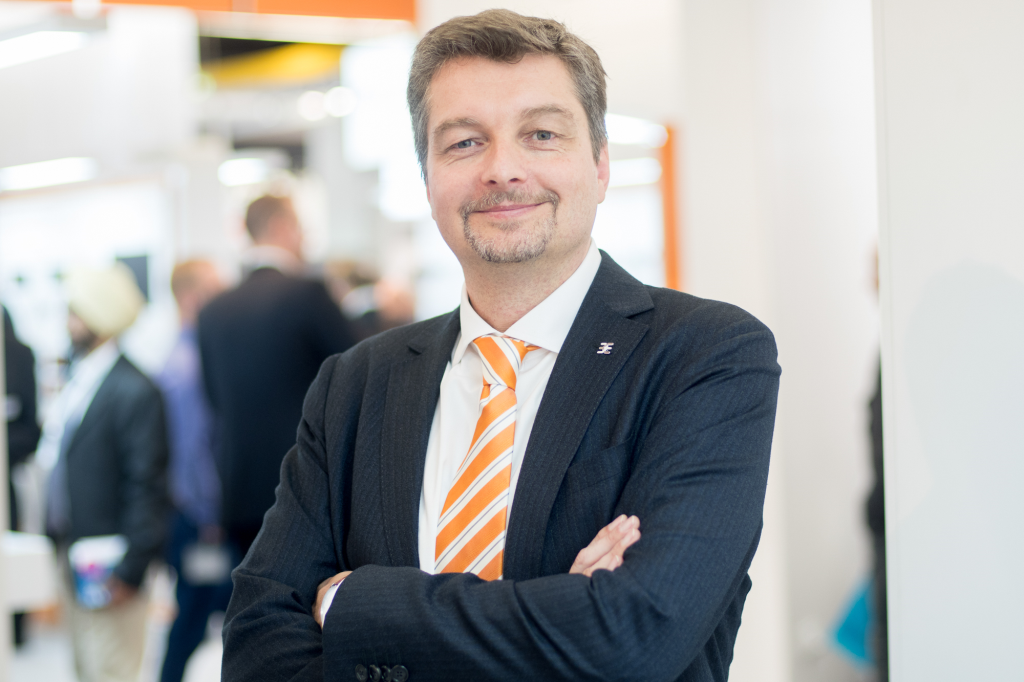 Networked, intelligent, transparent: the expectations of the smart factory of the future are high. As automation and digitalisation become increasingly interlinked, Michael Matthesius, head of the Automation Products and Solutions division at Weidmüller, discusses the benefits this will bring for companies.
Networked, intelligent, transparent: the expectations of the smart factory of the future are high. As automation and digitalisation become increasingly interlinked, Michael Matthesius, head of the Automation Products and Solutions division at Weidmüller, discusses the benefits this will bring for companies.
Mr Matthesius, a lot is spoken about the wide-ranging changes that digitalisation will bring about for machinery and plant engineering. What particular challenges are we currently faced with?
Matthesius: Right now, the factory of the future is faced with many different demands. On the one hand, it has to be built around genuine machine-to-machine communication, while at the same time having a flexible production system that can be used to quickly manufacture an array of products. Currently, many of these developments are being subsumed under the terms Industry 4.0 and smart factory. This entails the interlinking and networking of machines or systems, a significant increase in the dominance of software, a greater emphasis on automation solutions but also the gathering and evaluation of data material for the purposes of preventive maintenance. It calls for appropriate teams to master the marked increase in interdisciplinary aspects and issues. In this respect it is important to take a fresh look at optimising production and developing new business models or services. A machine is no longer delivered in its finished state, but adapts itself to meet future demands. This can be done through software updates, modular extensions, reworked networking or corresponding redesigns. Machine builders will also have to focus more on their customers and their business models. In addition to approaches such as remote maintenance, new ranges of services including consultancy will emerge. It is a question of implementing innovations quickly and efficiently.
What does Weidmüller offer its customers in the way of special solutions for mastering these challenges?
Matthesius: Components with the ability to communicate with each other form the basis for those with Industry 4.0-compliant production processes built on intelligent, safety-related networking. These create the conditions for the rapid provision and handling of process data, since they can exchange information between machines and IT systems in a profitable way. The core products for these applications are the open and individually scalable u-mation automation module or our industrial analytics solution for establishing predictive quality or predictive maintenance, for example. The remote I/O system u-remote has been enhanced with our innovative IoT controller u-control for traditional control tasks. This means that we now offer a complete modular automation system under the name u-mation. This uses OPC UA, a standard communication protocol that is manufacturer-independent, open and future-proof. In this way, we are offering an extensive portfolio for both machine and plant manufacturers, creating the backbone for machine-to-machine communication.
On the subject of industrial analytics, data analysis is one of the hottest topics when it comes to Industry 4.0. Where is Weidmüller positioned in this respect with the developments it has made?
Matthesius: With our industrial analytics solution and the cloud service u-link, we are already the strategic partner for many companies when it comes to getting added value out of machine and production data. We are able to work platform-independently and we can align ourselves very specifically to the requirements of the customer. The advantage we offer is that we can combine our expertise and application knowledge in machinery and plant engineering with our analytics know-how, so we are already a step ahead of many established IT companies and other providers. Because for the most part, while these companies understand the software, they are not familiar with the challenges faced by machinery and plant engineering companies. In particular, the experience in field data acquisition we have gained from our traditional business is a key benefit. We can integrate data analyses based on specific applications and derive value-adding conclusions from this. In practice this means that self-learning machines can identify and prevent potential process errors, thereby significantly reducing downtimes and as a result, driving up the overall productivity of the machine.
What approach does Weidmüller take when developing such solutions?
Matthesius: Let’s take the example of u-mation. While traditional PLC programming has remained very stable over the last 25 years, IT technologies have developed rapidly. We are taking advantage of this and with our products, we are providing the bridge to this new world and can provide support and solutions to companies as they address the evolution of automation. Now, we are not just offering another control solution. From day one, we have made our automation modules able to work with Industry 4.0.
For more information visit www.weidmuller.co.uk or call on 0845 094 2006.

